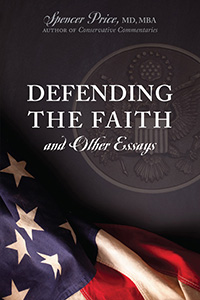The Case for Term Limits
Sunday, December 19th, 2021 @ 4:49PM
“We need term limits!” It’s a common mantra expressed by many voters, particularly around election time, and it’s a mantra with which I wholeheartedly agree. We do, in fact, desperately need term limits, and the reasons are obvious.
Of course, the knee-jerk response by most politicians is that term limits are unnecessary because, if the voters want change, they can “vote the person out.” After all, “the voters are in charge,” they say. Such statements are, in theory, mechanically correct, however, in the current state of American politics, such statements are utterly misguided and demonstrate a distressing lack of insight and political maturity. Here’s why…
To begin, the Founders were weary of a permanent political class due to the abuses suffered under the English Parliament. Initially, to protect against the rise of political elites in the new republic, the Articles of Confederation contained term limits preventing legislators from serving more than three years in any six-year period. Later, the new Constitution did not include term limits because, it was argued, sufficient virtue existed among legislators rendering such limits unnecessary. Serving in the legislature during the Founding era often interfered with making a living, thus legislators tended to complete the legislature’s business and return home as quickly as possible. Additionally, legislative service paid very little and few, if any, direct benefits existed, thus de-incentivizing political careerism. Not so today as many legislative bodies vote themselves pay raises at will, enjoy numerous benefits including premium insurance coverage at no cost, and lifetime pensions at full pay after serving only a few terms in office.
Next, long-term service in full-time legislative bodies, such as the U.S. House of Representatives or the U.S. Senate, interferes with gaining practical experiences in the work-a-day world that can be utilized to relate to the needs of average American citizens. This is especially true of very young legislators who manage to get elected at an early age but bring to office nothing in the way of meaningful experience.
Further, a serious problem associated with political careerism is its anti-democratic nature. Career politicians tend to become entrenched in office, becoming economically reliant on their legislative income as they forego earning a living in the private sector. Over time, they amass sizeable war chests of campaign contributions which they leverage in a manner that effectively prohibits primary challenges. Even more serious, the longer they serve, the more power and influence they acquire and the more outside entities become beholden to them. This power and influence tend to make many career politicians virtually invulnerable to primary challengers with new experiences, ideas, and perspectives.
Ultimately, the most anti-democratic entities in our government are the congressional and senate committees created to support incumbents against primary challengers. These committees, from both sides of the political aisle, collect contributions from sitting members of the House and Senate and from myriad outside sources which they use to support incumbents against primary challengers. This is an egregious assault on the basic principles of democracy and should be abolished. Incumbents protected from primary challenges tend to become less responsive to the will of their electorate and more responsive to their elected colleagues. For democracy to function more effectively, incumbents should be regularly challenged through primary elections. They should campaign on the merits of their legislative accomplishments and win or lose based upon the ideas and values they contribute to the governing process. It is perfectly reasonable and even expected that House and Senate re-election committees should support their candidates during the general election, however, they should remain completely neutral during the primaries. Given the regrettable fact that for many politicians, their most pressing concern is the next election rather than the will of the electorate, it is unlikely that this primary support of incumbents will be discontinued.
Term limits are no panacea for the many ills characterizing our current state and federal governments, however, such limits would serve to lessen the anti-democratic influences which negatively impact America’s political process.
Posted by Spencer Price
Categories: Latest Columns




